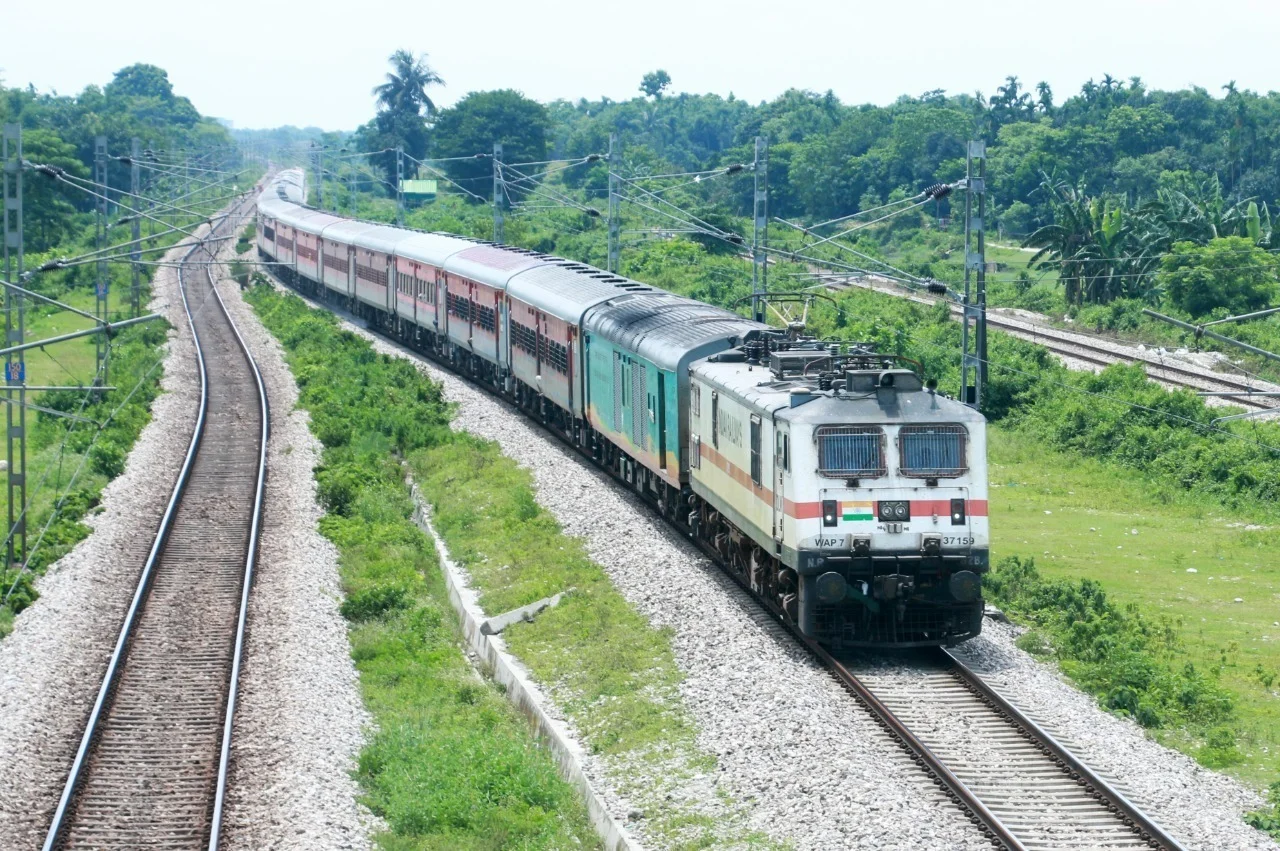The Ministry of Railways has reinstated the stoppage of the 12423/12424 Dibrugarh-New Delhi Rajdhani Express at Diphu Railway Station.
This decision, initially on an experimental basis, marks a crucial victory for regional connectivity and accessibility, addressing long-standing transportation needs for residents in these historically underserved hill areas. The restoration of this vital link underscores a growing focus on integrating remote regions into the national development narrative, fostering more equitable participation and sustainable growth. Previously, the premier Rajdhani Express, a critical artery connecting Dibrugarh with the national capital, bypassed Diphu, compelling residents of Karbi Anglong and Dima Hasao to undertake inconvenient and often costly journeys to neighbouring stations like Lumding or Dimapur to access this essential service. This logistical hurdle not only created economic burdens but also limited opportunities for residents, hindering seamless travel for business, education, and personal reasons. The reinstatement of the Diphu halt directly alleviates these challenges, demonstrating a responsiveness to public demand and an intent to enhance overall citizen welfare.
The proactive advocacy by Amarsing Tisso, the lone Lok Sabha MP representing the hill districts, played a pivotal role in this achievement. His persistent appeals to the Union Minister of Railways, Shri Ashwini Vaishnaw, highlighted the pressing need for this connectivity, underscoring the democratic process at work in addressing local grievances. The swift action by the Railways Ministry reflects a broader governmental commitment to improving infrastructure and services, particularly in regions that often face geographical disadvantages. This initiative aligns with the vision of creating more accessible and inclusive urban and semi-urban centres, where citizens, irrespective of their location, can benefit from robust public amenities. The economic implications of the restored Rajdhani Express halt are substantial. Enhanced rail connectivity is a proven catalyst for trade and commerce, reducing logistical costs and improving the flow of goods and services. For the hill districts of Karbi Anglong and Dima Hasao, this direct link to a major national corridor is expected to provide a significant boost to local industries, agriculture, and tourism. It facilitates easier movement for entrepreneurs, traders, and tourists, potentially unlocking new avenues for economic development and job creation in a manner that can be managed sustainably.
Beyond the immediate economic benefits, the improved transportation infrastructure contributes to the broader objective of fostering sustainable and eco-friendly urban and regional development. By making rail travel, a comparatively lower-carbon mode of transport, more accessible, the initiative indirectly encourages a shift away from more carbon-intensive road travel over long distances. This aligns with national and global efforts to achieve zero net carbon emissions and build greener cities, where public transport plays a central role in mitigating environmental impact. Furthermore, the increased accessibility provided by the Rajdhani Express stop has a significant human angle. It reduces travel fatigue, ensures safer journeys, and saves valuable time for thousands of individuals who frequently commute between these regions and the national capital. This includes students, professionals, and families, for whom reliable and efficient transportation is not merely a convenience but a fundamental necessity for progress and well-being. The emphasis on improved accessibility for all, including consideration for gender-neutral travel experiences and ease of access for persons with varying needs, implicitly underscores the broader commitment to equitable urban and regional planning.
While initially experimental, the reintroduction of the Rajdhani Express halt at Diphu is a powerful testament to the impact of targeted infrastructure improvements on community development. It sets a precedent for responsive governance and a commitment to integrating India’s diverse regions through robust, sustainable, and inclusive transportation networks. The success of this experimental phase will undoubtedly pave the way for more permanent and expanded services, further cementing the role of railways as a backbone for national progress and regional prosperity.
Also Read: New Delhi Railways to add 176 km capacity


